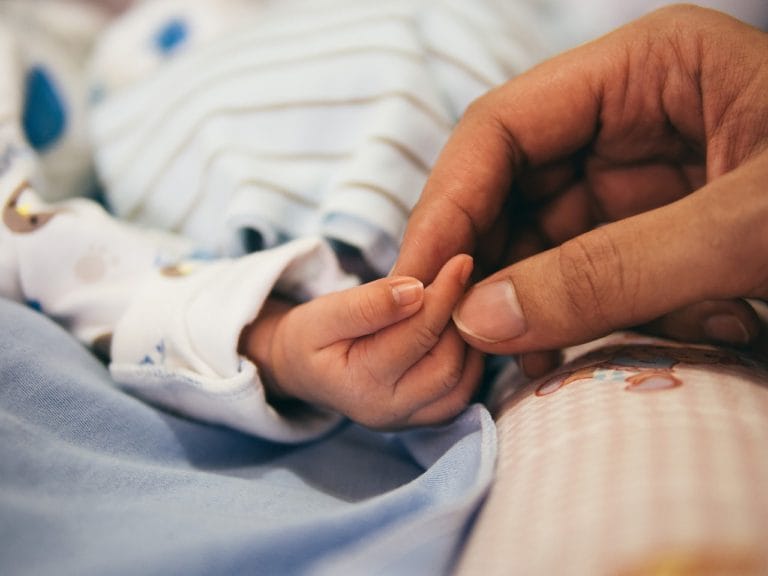Can I Prevent Postpartum Depression with My Next Child?
The grief and sadness around postpartum depression can be a motivator to make changes before the next baby. However, not all postpartum mood disorderss are preventable. Learn what you can do to protect your mental wellness with future pregnancies.

Many women experience grief and sadness around their postpartum experience when they’ve suffered from postpartum depression or other postpartum mood disorders. Women can experience numbness or a lack of joy when in postpartum recovery with postpartum depression. Others report a delay or struggle in bonding with their baby, negative impact on their relationship with their partner, and traumatic and difficult memories. Obviously, preventing postpartum depression or postpartum mood changes with subsequent pregnancies is ideal.
The responsibility of your providers
Ideally, prenatal care would include assessment for PPD risk factors and efforts to reduce risk of postpartum mood disorders. However, many providers focus solely on “physical health” and neglect to assess for depression or mood changes in pregnancy. Additionally, untreated postpartum depression can persist beyond the baby’s first birthday. Providers should continue to assess mood at annual well visits and other interactions with postpartum women beyond one year.
In the absence of this support, you can share your experience with your provider and ask your provider to monitor your mood throughout the family planning and prenatal process. Do not be ashamed of your postpartum depression experience. Your mood changes are not your fault. Talking about these changes and your mental health need is the first step to preventing postpartum mood changes with future children.
Treat any lingering symptoms
Have you fully recovered from postpartum depression, postpartum anxiety, postpartum trauma, postpartum OCD, or other mood changes? If you have any lingering symptoms or had pre-existing symptoms, it’s important to treat those now. Even if you are already pregnant, meeting with a postpartum therapist with experience treating postpartum mental health can help prevent worsening symptoms.
A postpartum therapist can help you identify anything that may have triggered your mood changes, including unnoticed risk factors. A postpartum therapist can refer you to other professionals and supports to help with your next postpartum experience.
Understand any triggers and risk factors
Many women know what triggered or exacerbated their postpartum mood challenges. Did you experience a birth trauma? Did you have limited extended family support? Was your baby struggling with health issues, colic, or feeding issues? Knowing these factors can help you prepare for the next baby, including seeking the support you will need in advance and build a support team for both you and your baby.
History of depression or family history of mood disorders are both risk factors. However, you may not know that history of sexual abuse is also a risk factor for PPD. Postpartum depression is more prevalent in women carrying twins or multiples. Complications in pregnancy and childbirth also increase the risk of postpartum depression. Many women do receive this information in the postpartum period. A postpartum therapist can help you learn more about your risk factors and to take steps to cope with any of those factors that cannot be mitigated.
Secure a support system
It’s OK if you don’t know what triggered your PPD or mood changes. It’s still beneficial to build a support system and a mental health plan for your postpartum period. Consider both formal and informal supports. Do your medical providers validate your experience and take time to listen to your needs? Would you benefit from a doula, a prenatal lactation meeting, or pelvic floor assessment and support? What friends, neighbors, and family members have offered to help? If you’re feeling isolated, can you use a paid caretaker to come in and offer support?
A postpartum therapist can help you access an experienced network of professionals. Additionally, postpartum therapy can help you develop comfort with advocating for yourself and reaching out for help. We aren’t meant to parent alone but many women don’t have the natural family and friend support system they need readily available.
Consider medication
If you benefited from medication in your postpartum period or you weren’t given this option, a prenatal visit with a Perinatal Mental Health Certified prescriber may be beneficial. Some prescribers will recommend beginning medication before birth. A prescriber will be able to explore your past symptoms with you and help you understand your options for your next postpartum period. We strongly encourage meeting with a specialist prescriber who has advanced training in perinatal mental health. Even if you do not want to take medication, you can arm yourself with all of the information and options.
Get through it with support
Not all postpartum depression and postpartum mood disorders can be prevented, even when women prepare. Many postpartum mood disorders are triggered by biological and hormonal factors that are out of your control. However, armed with the right knowledge, support system, and coping tools, you can get through this experience without shame or regret. Do not let fear about PPD prevent you from taking steps to help your future self.
Skylands Wellness provides postpartum therapy that can help you develop a plan for mental wellness in your postpartum period. If faced with postpartum mood changes, we can help you navigate these experiences so that you can reflect on your postpartum period with nostalgia and not grief. Reach out to us today to schedule a free 15-minute phone consultation. We would love to support you on your parenting journey!




